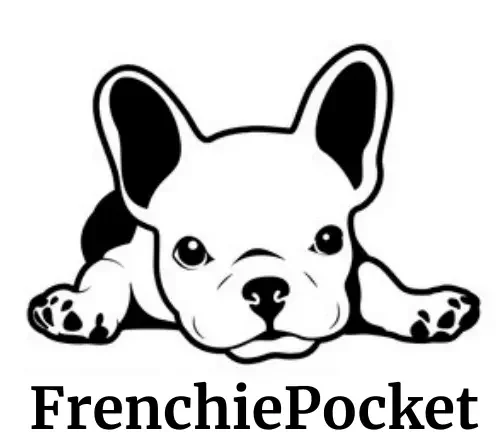French Bulldog Health Problems
Many people who own French Bulldogs are worried about their pets’ health. Many health issues might lower the quality of life for French Bulldogs despite their lovable attitude and cute appearance.

Here, we’ll go over some of the most common French Bulldogs health problems, as well as some solutions to those problems. If you have a French Bulldog or are considering getting one, read on so that you can be an educated advocate for your pet’s health.
History of Health Issues
The medical history of French Bulldogs is extensive and complicated. These cute canines are often associated with expensive medical expenses due to many inherited health issues. As a result, many owners have given up their pets because they couldn’t afford the costly medical treatment they required. However, the likelihood of incurring such high costs can be drastically reduced by purchasing a pet from a reliable breeder and obtaining pet insurance.

While French Bulldogs have the fewest health problems of any bully breed, they occasionally experience serious problems. Breathing problems, hip dysplasia, and joint/spinal abnormalities can be prevented through responsible breeding procedures, but they can be brought on through selective breeding for beauty alone. This article will discuss the origins of French Bulldog health issues and offer advice on ensuring your pet has a long and fulfilling life.
21 French Bulldog Health Issues
Allergies
French Bulldogs frequently experience allergic reactions because their immune systems overreact to particular substances. Food, insects, pollen, dust mites, and even some drugs can all be sources of allergies.
Itching, skin irritation, redness, rashes, and ocular or nasal discharge are symptoms a French Bulldog may experience after exposure to an allergy. Anaphylactic shock, a potentially fatal reaction, is a severe consequence of allergies, which can induce vomiting and diarrhea.
Determining the precise trigger of an allergy in a French Bulldog can be tricky, but skin or blood tests can help identify common allergens. If the allergen is discovered, the next step is to take measures to either reduce or eliminate exposure to it, depending on the severity of the allergy.

Medication, dietary changes, and environmental adjustments are all viable options for treating French Bulldogs’ allergies. To treat French Bulldog allergies, veterinarians typically recommend antihistamines, corticosteroids, and immunotherapy (allergy shots). A change to a hypoallergenic diet, free of wheat, maize, and soy, may also help certain French Bulldogs with food sensitivities.
French Bulldog allergy management may also necessitate adjusting the home environment. Avoiding allergenic plants and pollens outside and keeping your home clean and dust-free will help lessen the severity of allergy reactions. If the French Bulldog’s allergy is severe, keeping it away from the offending substance may be important.
French Bulldog allergies can be difficult to treat, but numerous options are available to enhance your dog’s quality of life. You and your veterinarian should work together closely to pinpoint the allergen and create a treatment plan that is just right for your French Bulldog.
Hip Dysplasia
Hip dysplasia is a common orthopedic disorder characterized by excessive wear and probable hip joint degeneration due to improper hip development. French Bulldogs are susceptible to hip dysplasia, albeit it is more typically seen in larger dog breeds.
French Bulldogs can be predisposed to hip dysplasia due to a combination of heredity, the environment, and poor diet. Hip dysplasia is more common in French Bulldogs that are either overweight or not given appropriate nutrients when young.
French Bulldogs with hip dysplasia may show a wide range of symptoms, including, but not limited to, a limp, trouble standing or sitting, reluctance to move or exercise, and hip or rear leg stiffness. Muscle atrophy and soreness upon handling are other symptoms that might occur in French Bulldogs with hip dysplasia.
French Bulldogs with hip dysplasia are normally diagnosed through a physical exam and x-rays of the hip joint. Computed tomography (CT) and magnetic resonance imaging (MRI) are two examples of imaging modalities that can be utilized to get a better look at the hip joint.
The severity of French Bulldog hip dysplasia determines the available treatment choices. In moderate cases, discomfort can be reduced, and disease progression slowed by watching one’s weight, adjusting one’s exercise routine, and taking joint supplements. Surgery, such as a femoral head osteotomy (FHO), total hip replacement (THR), or juvenile pubic symphysiodesis (JPS), may be required in more severe cases to restore function and decrease pain.
French Bulldogs can avoid developing hip dysplasia with the right diet and exercise during their formative years. Buying French Bulldogs from reliable breeders that perform health checks for issues like hip dysplasia is also crucial.
Conjunctivitis (Pinkeye)
French Bulldogs frequently suffer from conjunctivitis, also known as pinkeye, an inflammation of the conjunctiva, the thin tissue that borders the inner surface of the eyelids and the eye’s white area. Allergies, bacterial or viral infections, allergens, stress, and so on can all trigger an inflammatory response.
Redness and swelling of the conjunctiva, excessive tearing, discharge from the eyes, squinting or blinking, and sensitivity to light are all possible symptoms of conjunctivitis in French Bulldogs. Conjunctivitis is a common eye infection but can cause corneal ulcers and permanent vision loss in extreme situations.
To determine the cause of conjunctivitis in French Bulldogs, a veterinarian will do a physical examination, which will often include an eye exam and perhaps a culture of the discharge from the eye.
French Bulldog conjunctivitis treatment begins with finding the underlying cause. When allergies or irritants are to blame, patients may benefit from avoiding the offending substance while taking anti-inflammatory drugs orally or topically. If a bacterial or viral infection is thought to be the cause, antibiotics and antiviral medications may be prescribed.
Keeping your French Bulldog’s eyes clean and protected from allergens and irritants is the best way to prevent conjunctivitis. You should also monitor your French Bulldog’s activity level and demeanor to avoid eye injuries.
French Bulldogs frequently get conjunctivitis, the inflammation of the eye’s clear membrane. Early detection and treatment can lessen the likelihood of discomfort and vision loss. Preventing conjunctivitis in your French Bulldog requires keeping up with their eye cleanliness and watching their behavior.
Deafness
French Bulldogs often suffer from congenital (existing at birth) or acquired (developing over time) deafness. Like many other dog breeds, French Bulldogs have an increased risk of developing congenital deafness due to a genetic abnormality.

French Bulldogs’ deafness can show out in a number of different ways. Still, the most typical signs are an inability to respond to sound, a refusal to get up when approached or stroked, and strange vocalizations or barking. Other characteristics, such as irritability or aggression, may also be present.
Deafness in French Bulldogs is usually diagnosed with the help of a hearing test administered by a veterinarian or veterinary specialist. The brainstem auditory evoked response (BAER) test is used most often because it measures the brain’s electrical activity in reaction to sound.
French Bulldog deafness treatment options are condition-specific. Treating the underlying cause, such as an ear infection or injury, may help restore hearing in people with acquired deafness. There is no treatment for congenital deafness in dogs, so owners must find other ways to communicate with their pets and ensure their safety.
Deaf French Bulldog owners can use visual clues like flashing lights to catch their dog’s attention, sign language, and hand signals. A deaf French Bulldog should be kept on a leash or in a secure environment to prevent it from getting lost or into harm’s way.
Because genetic reasons often cause deafness in French Bulldogs, prevention can be challenging. Congenital deafness is unfortunately common in French Bulldogs, although it can be reduced via selective breeding of dogs tested for the problem.
French Bulldogs frequently suffer from either congenital or acquired deafness. A cure for congenital deafness in dogs has not yet been discovered. However, the condition can be managed to help with communication and ensure the dog’s safety. Congenital deafness in French Bulldogs can be reduced through breeding initiatives.
Cherry Eye
When the gland responsible for producing tears in a dog’s eye moves out of its natural location and protrudes from the inner corner of the eye, this condition is known as the “cherry eye.” This dislocation leads to inflammation and swelling of the gland, making it look like a red or pink cherry-like lump.

Dogs of many breeds are susceptible to developing cherry eye, but French Bulldogs are particularly at risk. Cherry eye can have many causes, including genetic predisposition, connective tissue weakness, and ocular damage.
If left untreated, a dog with the cherry eye will have discomfort and irritation, which might progress to more serious eye problems. Fortunately, the illness is typically painless, and most dogs can fully recover with the right care.
Surgical intervention to relocate the gland back to its usual location is the standard treatment for the cherry eye. In addition, your veterinarian may suggest anti-inflammatory medications or other therapies for any associated symptoms.
Getting veterinary help immediately is crucial if you think your French Bulldog or dog has a cherry eye to guarantee immediate treatment and avoid further difficulties.
Brachycephalic Airway Syndrome (BAS)
French Bulldogs and other brachycephalic (short-nosed) dogs frequently breed and experience Brachycephalic Airway Syndrome (BAS). Dogs with this disease have trouble breathing because a combination of structural defects causes their airway to be narrowed. Some of the anatomical abnormalities that contribute to BAS in French Bulldogs include:
- Narrow nostrils (stenotic nares)
- Elongated soft palate
- Hypoplastic trachea (narrowed windpipe)
- Everted laryngeal saccules (flaps of tissue near the vocal cords that become inverted)
The Symptoms of BAS:
- Noisy breathing
- Snoring
- Shortness of breath
- Gagging or retching
- Rapid or labored breathing
- Difficulty exercising or playing
Breathing difficulties and possible collapse are possible outcomes of BAS. If your French Bulldog shows symptoms of BAS, prompt veterinary attention is essential.
Medical management of symptoms and surgical correction of some structural defects are possible approaches to treating BAS. Your veterinarian may prescribe medication to relieve inflammation and swelling in the airways, and they may also suggest modifying your pet’s environment and activity level to alleviate symptoms.
With proper care and management, most dogs diagnosed with BAS can lead normal lives. To ensure your French Bulldog gets the best treatment possible, you must communicate effectively with your doctor.
Stenotic Nares
Stenotic nares affect several brachycephalic (short-nosed) dog breeds, including French Bulldogs. Nasal collapse or narrowing is a disorder that can make breathing difficult.

French Bulldogs’ tiny nostrils might make it hard for air to enter their lungs, making normal breathing difficult. This can lead to complications with breathing, such as snoring, snorting, and noisy breathing. More severe respiratory issues, such as overheating, exhaustion, and collapse, may also result from stenotic nares.
When it comes to French Bulldogs, stenotic nares are usually treated surgically. A nares resection is a surgical technique whereby nasal tissue is removed to increase nostril size and ventilation. The technique can be done successfully and safely under general anesthesia.
Treatment options for stenotic nares in French Bulldogs go beyond surgical intervention. For instance, you should keep them out of hot, humid places if they have trouble breathing. The severity of the illness can be mitigated by engaging in regular physical activity and keeping a healthy body weight.
If you suspect your French Bulldog has stenotic nares, prompt veterinary attention is essential. Most dogs with stenotic nares can live long, full lives with the right care and attention.
Tracheal Collapse
French Bulldogs and other small breeds of dogs frequently experience tracheal collapse. A weak and compressed trachea makes breathing difficult for affected dogs.
Genetic predisposition, obesity, respiratory infections, and chronic tracheal irritation are all risk factors for the tracheal collapse in French Bulldogs. A honking cough, trouble breathing, inability to exercise, and respiratory distress are all possible signs of tracheal collapse.
French Bulldogs with tracheal collapse are normally diagnosed through a thorough physical examination, X-rays, and perhaps a bronchoscopy. Tracheal collapse treatments may include:
- Loss of body fat and control of underlying diseases, including asthma and allergies.
- Inflammation-fighting and airflow-enhancing drugs like bronchodilators and corticosteroids.
- A harness, as opposed to a collar, can keep the trachea from being compressed.
- Sometimes, surgery to reinforce the trachea and increase airflow is the only option.
Urgent veterinarian care is required if you have a French Bulldog and suspect they have tracheal collapse. Most dogs with tracheal collapse can normally live with the right care and attention.
Heat Stress
Heat stress, often known as heatstroke, is especially dangerous for French Bulldogs and other brachycephalic (short-nosed) breeds. Some dogs are more prone to heat stress because of their anatomical makeup, making maintaining a normal body temperature harder.

Breathing can be difficult for French Bulldogs in hot and humid weather due to their narrow upper airway. They have a high amount of body fat and a low surface area to body weight ratio, making it easy to overheat.
French Bulldogs experiencing heat stress may exhibit symptoms such as heavy panting, drooling, listlessness, vomiting, diarrhea, and even collapse. Heat stress is a serious medical emergency that can result in organ failure, seizures, and even death.
Taking careful care of your French Bulldog during hot weather is essential to preventing heat stress. It’s best to avoid excessive activity during the warmest portions of the day and keep them inside or in a cool, shady environment with lots of fresh water. You can use cooling mats, fans, and ice packs to further assist in cooling your French Bulldog.
If you think your French Bulldog is experiencing heat stress, you should take him to the vet immediately. Timely medical attention can lessen the likelihood of fatal consequences and save your dog’s life.
Elongated Soft Palate
French Bulldogs and other brachycephalic breeds frequently suffer from respiratory complications due to an elongated soft palate. When you swallow, a flap of tissue called the soft palate at the back of your neck seals off your airway. When it becomes longer, it pushes further into the airway, obstructing the dog’s airflow and making it harder for him to breathe.
French Bulldogs with an extended soft palate may exhibit respiratory distress through excessively noisy breathing, snoring, gagging, or coughing. As a result of having to work harder to breathe, some dogs may develop an intolerance to exercise. Extreme cases of the extended soft palate are associated with difficulty breathing and possibly collapse.
Surgery to shorten and reshape a French Bulldog’s soft palate can enhance breathing and lessen the likelihood of difficulties when the palate is too lengthy. Stenotic nares (narrow nostrils) and hypoplastic trachea are two more respiratory conditions that may necessitate intervention (narrow windpipe).
Soft palate elongation is commonly genetic in French Bulldogs, making it difficult to prevent. However, the frequency of this disease in future generations can be reduced by not breeding dogs with this illness and by having puppies undergo adequate respiratory assessments. Complications can be avoided, and your dog’s quality of life can be enhanced with prompt diagnosis and treatment.
Laryngeal Collapse
French Bulldogs, like many brachycephalic breeds, are susceptible to laryngeal collapse, which limits their ability to breathe. As the dog breathes in, the laryngeal cartilages collapse inward due to weakness, blocking the airway and making breathing difficult.
Loud breathing (particularly during exertion or excitement), panting, gagging, coughing, and trouble breathing are all possible signs of laryngeal collapse in French Bulldogs. The dog may have life-threatening respiratory problems in extreme circumstances.
French Bulldogs suffering from laryngeal collapse are often treated with weight loss, exercise restraint, and anti-inflammatory drugs or corticosteroids to minimize airway irritation. When medical treatment is insufficient, surgery to clear the obstruction and restore normal breathing is the only option.
French Bulldog owners should know the symptoms of laryngeal collapse and take their dogs to the clinic immediately if they show any signs of difficulty breathing. Dogs with this sickness have a better chance of recovering if they receive treatment quickly. Breeders could also lessen the prevalence of respiratory issues by selecting dogs with milder brachycephalic characteristics.
Hemivertebrae
With the condition known as hemivertebrae, one or more of the vertebrae in the spine are abnormally formed like a wedge rather than a rectangle. As a result, the spine may curve unnaturally, irritating the nerves.
The short skull and broad face of the French Bulldog classify it as a brachycephalic breed. Spinal abnormalities like hemivertebrae are only one example of how this can affect a developing brain.
French Bulldog owners who suspect their pet may have hemivertebrae should take their dog to the vet for a proper diagnosis and course of therapy. Treatment options may include surgical procedures, physical therapy, and anti-inflammatory drugs.
It is challenging to eliminate the possibility of hemivertebrae in French Bulldogs by prevention measures, although careful breeding can help. It is crucial to work with a reliable breeder who performs health checks and genetic testing on their dogs.
Intervertebral Disc Disease
When the discs in your spine degenerate or rupture, it can put undue stress on your spinal cord and nerves, a condition known as intervertebral disc disease (IVDD). Any dog, including French Bulldogs, is susceptible to this condition, which can cause agony, weakness, and even paralysis.
Because of their small legs and long back, French Bulldogs are at a higher risk of developing IVDD than other dog breeds. This might cause additional strain on their spine, eventually leading to IVDD.
French Bulldogs affected by IVDD may have back pain, unwillingness to walk, weakness or paralysis in the hind limbs, and incontinence or involuntary bowel movements. If the disease is suspected, the prognosis for French Bulldogs with IVDD can be improved with prompt veterinary attention.
Medications to reduce pain and inflammation, enforced rest to allow the spine to recover, and, in severe cases, surgery to release pressure on the spinal cord are all potential treatments for IVDD in French Bulldogs.
A healthy weight, a lack of excessive jumping or rough play, and a supportive orthopedic bed can all help stave off IVDD in French Bulldogs. Also, the risk of passing this illness on to future generations can be mitigated by partnering with a professional breeder who does genetic screenings.
Degenerative Myelopathy
French Bulldogs, like other dogs, are susceptible to degenerative myelopathy (DM), a spinal cord disease. Myelin sheath degeneration is a degenerative condition that destroys the insulation around spinal cord nerves.
Weakness in the rear limbs, trouble standing and walking, and loss of muscle mass in the hindquarters are all signs of DM in French Bulldogs. As the condition advances, the dog’s hind legs could eventually become entirely paralyzed.
Neither DM in French Bulldogs nor any other dog breed is curable. Treatment aims to alleviate patients’ suffering and slow the disease’s progression. Exercise, carts, and slings are all examples of mobility aids that could be used with physical therapy.
Genetic tests can pinpoint canines that harbor the DM gene, and studies point to the heritability of the disease in French Bulldogs. To lower the risk of DM in future generations of French Bulldogs, working with a professional breeder who uses genetic testing and refrains from breeding dogs who are carriers is important.
Patellar Luxation
When the kneecap (patella) moves out of its natural groove at the end of the thigh bone, an orthopedic problem known as patellar luxation occurs. A painful, limp, and unnatural gait may result from this. One of the dog’s breeds prone to patellar luxation is the French Bulldog.
Patellar luxation can range from minor to severe in French Bulldogs. Cases that are not severe may not need any treatment, while more serious ones may call for surgery.
French Bulldogs with patellar luxation may limp, hop, or skip as they walk, and have trouble fully extending their hind legs. Diagnostic procedures in veterinary medicine may include observation of signs and symptoms, a thorough physical examination, and even imaging studies like X-rays.
French Bulldogs with mild cases of patellar luxation may not require treatment. Weight loss, exercise, and nutritional supplements may help with mild cases. Surgery to relocate the patella and repair the knee’s supporting tissues may be necessary for more severe cases.
Working with a reputable breeder who does health exams before breeding will help reduce the incidence of patellar luxation in French Bulldogs. It is possible to limit the prevalence of orthopedic disorders in future generations of dogs by not breeding dogs with a family history of patellar luxation or other such disorders. Regular exercise and a healthy weight are also important in reducing the risk of orthopedic problems in your French Bulldog’s joints.
Entropion
When the eyelid rolls inward, the eyelashes and skin scrape against the eye, generating a condition known as entropion. Irritation, discomfort, corneal ulcers and other eye disorders might result. Among the dog breeds prone to developing entropion are French Bulldogs.
Excessive crying, squinting, and scratching or pawing at the affected eye are all signs of entropion in French Bulldogs.
Surgical correction of the eyelid position is the standard treatment for entropion in French Bulldogs. To fix this, doctors may have to relocate the eyelid or remove a small piece of skin. To get the greatest results, surgery is sometimes performed in phases.
Working with a reputable breeder that performs eye exams on their dogs before mating will help reduce the incidence of entropion in French Bulldogs. Reducing the prevalence of entropion and other eye diseases in future generations requires keeping dogs with a history of the ailment out of breeding programs. Entropion can be avoided in French Bulldogs by keeping their eyes clean and protected from irritation.
Distichiasis
Extra eyelashes (distichiae) sprout from the eyelid’s glands, a disease known as distichiasis. This might irritate the cornea or conjunctiva. Several dog breeds, including French Bulldogs, are more likely to develop distichiasis than others.
French Bulldogs with distichiasis often show signs including constant blinking, squinting, and pawing or rubbing at their eyes. The dog’s eyes may get irritated to the point of developing corneal ulcers or other complications.
A veterinarian can detect distichiasis in French Bulldogs with a thorough physical examination and eye exam. Manual removal of the excess eyelashes or surgical removal of the eyelashes or glands is both viable treatment options.
Working with a reputable breeder that does pre-breeding eye exams on their dogs is crucial for reducing the risk of distichiasis in French Bulldogs. Dogs having a family history of distichiasis or other eye issues should not be bred to prevent passing the disease on to future generations. Distichiasis can be avoided in French Bulldogs if their eyes are kept clean and protected from irritation.
Cataracts
Cataracts are a common kind of visual impairment and even blindness caused by cloudiness of the eye’s lens. Cataracts can occur in French Bulldogs, as in many other dog breeds.
Cloudiness or opacity, a change in the lens’s color, and trouble seeing or navigating around objects are all possible symptoms of cataracts in French Bulldogs. Cataracts can progress slowly and produce only mild visual issues, or they can progress fast and cause total blindness.
A vet can diagnose cataracts in French Bulldogs after a thorough physical examination and an examination of the dog’s eyes. Cataracts in dogs can be treated surgically by removing the clouded lens and replacing it with an artificial lens or medically by taking medicine or vitamins to reduce the cataract’s growth.
Working with a reputable breeder who does eye exams on their dogs before mating will help reduce the likelihood of your French Bulldog developing cataracts. It is possible to lessen the prevalence of cataracts and other eye issues in future generations of dogs by not breeding dogs with a history of these conditions. Maintaining your French Bulldog’s eye health and warding against cataracts can be accomplished by combining a balanced diet, moderate activity, and periodic veterinary examinations.
Von Willebrand’s Disease (VWD)
An inherited bleeding ailment known as Von Willebrand’s disease (VWD) affects humans and dogs of many breeds, including French Bulldogs. A lack of the clotting protein von Willebrand’s factor, which is necessary for the development of blood clots, is the root cause of this disorder.
French Bulldogs with VWD may bleed excessively after injuries or procedures, develop bleeding noses and gums, or have other forms of blood loss. In extreme cases of VWD, a dog’s joints, muscles, or internal organs may bleed spontaneously.
A blood test evaluating the concentration and activity of von Willebrand’s factor can detect VWD in French Bulldogs. After surgery or other medical procedures, VWD in dogs can be treated with blood transfusions or the injection of clotting agents to limit bleeding. Medication to stimulate the generation or release of von Willebrand’s factor may be administered in specific instances.
Working with a reputable breeder who does pre-breeding health checks on their dogs is crucial for reducing the risk of canine hereditary diseases like VWD in French Bulldogs. It is possible to limit the prevalence of VWD and other bleeding diseases in future generations by not breeding dogs with a history of the disease. Notifying your veterinarian and any potential caretakers about your French Bulldog’s diagnosis with VWD is crucial for ensuring your dog receives the care it needs.
Cleft Palate
An opening in the hard palate is the defining feature of the birth condition known as the cleft palate. This isn’t just a problem for French Bulldogs; other dog breeds may experience this, too.

A cleft palate can cause various issues in French Bulldogs, including trouble breastfeeding, failure to thrive, nasal discharge, and breathing problems. Cleft palate is a medical condition that, if neglected, can cause aspiration pneumonia and starvation.
A veterinarian’s physical examination is the gold standard for diagnosing cleft palate in French Bulldogs. Surgery to close the opening in the roof of the mouth is the typical course of treatment for cleft palate, and this may be done in stages over months.
While cleft palate in French Bulldogs is a congenital disability, preventing it might be challenging. However, the chance of passing this illness on to future generations can be reduced by working with a reputable breeder who performs health checks and genetic testing on their dogs before breeding them. In addition, if your French Bulldog has a cleft palate, you and your doctor must work closely to ensure your pet’s health and well-being.
Thyroid Conditions
Like other dog breeds, French Bulldogs are susceptible to thyroid problems like hypothyroidism and hyperthyroidism. Hyperthyroidism occurs when the thyroid produces an excessive amount of thyroid hormone. Hypothyroidism occurs when the thyroid gland fails to produce enough of the hormone.
Thyroid disorders in French Bulldogs can cause behavioral and emotional changes, as well as changes in weight and appetite. Thyroid disorders in French Bulldogs are typically diagnosed by blood tests that evaluate the body’s sensitivity to thyroid hormones.
French Bulldogs with thyroid problems may benefit from dietary or lifestyle adjustments and medicine to either stimulate or inhibit the thyroid’s hormone production. Thyroid hormone levels must be monitored often to ensure optimal medication.
Thyroid problems in French Bulldogs can be difficult to prevent because of the breed’s possible genetic sensitivity to the disease. However, frequent veterinary checkups, blood testing, and a healthy diet and exercise for your Frenchie can help diagnose thyroid issues early and enhance treatment success. To further limit the prevalence of thyroid disorders in future generations of French Bulldogs, it is essential to deal with a reputable breeder who checks their dogs for hereditary conditions before breeding.
How do I keep my French Bulldog healthy and free of genetic issues?
Responsible breeding procedures and proactive dog health care are essential for preventing genetic disorders in French Bulldogs. You can help reduce the risk of genetic issues in French Bulldogs by following these guidelines:
- Pick a breeder who cares about their dogs’ health and puts them through rigorous health checks and genetic analysis before breeding. Try to choose a breeder who is open about the health of their dogs and has a solid reputation in the canine breeding world.
- Genetic disorders are widespread in French Bulldogs; you should familiarize yourself with hip dysplasia, patellar luxation, and brachycephalic syndrome. You’ll be better able to see any signs of trouble with your dog’s health and treat it as soon as possible.
- Ensure your French Bulldog gets plenty of exercises and a balanced diet that covers all its nutritional demands. Keeping to a healthy weight and engaging in regular exercise has been shown to reduce the risk of getting a number of hereditary disorders.
- Checkups with the vet should be routinely scheduled so that any developing health problems in your French Bulldog can be identified and treated early.
- Respect established health standards by giving your French Bulldog the shots, preventative drugs, and dental and parasite preventative care he needs.
Investing in pet insurance
A French Bulldog’s health and financial stability are worth protecting, so consider purchasing pet insurance. Pet insurance can assist in paying for expensive procedures, including diagnosis, prescriptions, and emergency care.
Consider the policy’s kind of coverage, yearly limitations, deductibles, and exclusions when shopping for pet insurance for your French Bulldog.
You should look into many insurance companies and compare their plans before settling on one to cover your French Bulldog. Choose a plan that fits your budget while still providing adequate protection.
Pet insurance for your Frenchie may be an extra cash outlay, but it can give you peace of mind and financial protection in a medical emergency. Be sure you read the policy’s fine print and thoroughly grasp its coverage, exclusions, and restrictions.
What does pet insurance not cover?
Most pet insurance policies contain restrictions and exclusions that outline the scope of coverage. Pre-existing conditions, or health problems your pet had before you got the coverage, are typically not covered by pet insurance. Vaccinations, checkups, and dental cleanings are all considered part of the typical cost of pet ownership and hence are not covered by pet insurance coverage. Finally, pet insurance policies may not pay for breed-specific illnesses like hip dysplasia in larger dog breeds because the ailment is more prevalent in that breed and hence a higher risk for the insurer.
What does pet insurance cover?
In the event of an accident, illness, or injury, pet insurance can help pay for necessary veterinarian care. The specifics of pet insurance policies vary by provide:
- The majority of pet insurance policies cover veterinary treatment costs. This includes checkups, lab work, prescriptions, and even surgery.
- Treatment for poisonings, accidents, and sudden diseases are all examples of emergencies pet insurance can help pay for.
- For example, visits to veterinary ophthalmologists and dermatologists may be covered by some insurance plans for pets.
- In-Patient Care Hospitalization and in-patient treatment, including overnight stays and nursing care, are covered by most pet insurance policies.
- Alternative therapies such as acupuncture and physical therapy may be covered by some pet insurance policies.
Types of Insurance Policies
Pet owners can modify their search for pet insurance to meet their specific requirements and financial constraints. The most typical pet insurance plans include the following coverage options:
- Accident-Only Policies: As the name implies, these insurance only cover accidental accidents, such as broken bones or bites from other animals.
- Illness Policies: These policies cover veterinary care expenses related to illnesses like infections, digestive issues, and allergies. They do not cover accidental injuries.
- Accident and Illness Policies: These policies offer comprehensive coverage for both accidental injuries and illnesses. They cover the cost of veterinary care for accidents, illnesses, and other treatments, including surgeries, diagnostic tests, and medications.
- Comprehensive Policies: These policies provide the most extensive coverage for accidents, diseases, routine exams, vaccines, and dental care, among other services. They are the most expensive type of policy but provide the most extensive coverage.
- Wellness Plans: These plans are not technically insurance policies but are designed to cover routine preventive care costs, such as vaccinations, checkups, and flea and tick prevention.
When choosing a pet insurance policy, it’s essential to read the terms and conditions carefully to understand what is and is not covered, including deductibles, exclusions, and limitations.
There are some things you should know before buying a French Bulldog
There are a few things to think about before introducing a French Bulldog into your home:
- French Bulldogs can suffer from brachycephalic syndrome, patellar luxation, and hip dysplasia. Ensure the breeder you select checks their dogs’ health and does genetic testing.
- When buying a French Bulldog, getting to know the breed and its members is important to make sure you’re a good match for each other.
- Although they aren’t the most energetic dogs, French Bulldogs nevertheless need regular exercise and playing. Make sure your French Bulldog will get enough of daily activity, such as walks or time to run about in a secure yard.
- Because of their short, glossy coats, French Bulldogs rarely need extensive maintenance. Nonetheless, they need to have their facial creases regularly cleaned to avoid skin irritation and infection.
- Besides the initial cost, maintaining a French Bulldog involves regular outlays for food, veterinarian care, and supplies.
- To successfully teach a French Bulldog, you should begin classes as soon as possible and maintain a consistent method of instruction. Take your French bulldog to obedience lessons or hire a professional trainer.
Frequently Asked Questions
Are French Bulldogs prone to health problems?
Due to their brachycephalic (flat-faced) skull structure, French Bulldogs are more likely to develop health problems such hip dysplasia, patellar luxation, and breathing difficulties.
Are French Bulldogs easy to train?
Although French Bulldogs have a reputation for being difficult to teach, they often react positively to constant, positive reinforcement.
Conclusion
French Bulldogs are well-liked due to their pleasant demeanors, small stature, and eye-catching design. They flourish with the right care and attention but are susceptible to certain health issues. It’s crucial to consider the French Bulldog’s health, temperament, activity and grooming requirements, and cost before purchasing. Your French Bulldog deserves a happy and healthy life, and you can give it that by being an informed and conscientious pet owner.






